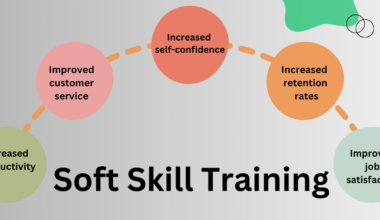The world is changing fast, and so are the skills you need to thrive in it. You may have noticed that the education system you grew up with is not keeping up with the pace of innovation and disruption. It is still focused on memorizing facts and theories rather than developing practical skills and competencies that you can apply in real-life situations. That’s why skill-based education is the way to go. It is a learning approach that helps you master the skills that matter in the 21st century.
In this blog, we will show you what skill-based education is and why it is essential for your future.
What is skill-based education?
Skill-based education is a type of education that focuses on developing specific skills and competencies that are useful and applicable in real-world situations. Unlike traditional education, which mainly emphasizes acquiring theoretical knowledge and information, skill-based education aims to equip learners with practical abilities and attitudes that can help them solve problems, create opportunities, and achieve their goals.

Skill-based education can cover a wide range of domains, such as technical skills, digital skills, communication skills, interpersonal skills, leadership skills, entrepreneurial skills, etc. Skill-based education can also be tailored to the needs and interests of different learners, such as students, workers, professionals, entrepreneurs, etc.
Benefits of skill-based education
For learners, skill-based education can help them:
- Develop their confidence, creativity, critical thinking, problem-solving, communication, teamwork, and leadership skills.
- Acquire the technical and vocational skills that are in high demand in various sectors and industries.
- Improve their employability, career prospects, income potential, and lifelong learning opportunities.
For teachers, skill-based education can help them:
- Design more engaging, interactive, and personalized learning experiences for their students.
- Use more diverse and innovative teaching methods and tools, such as online platforms, multimedia resources, gamification, etc.
- Collaborate more effectively with other teachers, employers, and experts to enrich their professional development and knowledge.
For employers, skill-based education can help them:
- Recruit and retain qualified, skilled, and motivated workers who can contribute to their organizational goals and performance.
- Reduce their training costs and time, as well as increase their productivity and competitiveness.
- Foster a culture of innovation, collaboration, and continuous improvement in their workplace.
For society, skill-based education can help create:
- A more skilled, educated, and productive workforce can drive economic growth and social development.
- A solution to the skills gap and mismatch between supply and demand for labor in the market.
- Promotion of social inclusion, equity, diversity, and sustainability in society.
The role of skill-based education in the modern economy
Skill-based education is becoming more important in the modern economy, which is undergoing rapid changes due to technological advancements, globalization, and environmental challenges.

Some of the benefits of skill-based education for the modern economy are:
- Skill-based education allows learners to adapt to changing needs and opportunities in the labor market.
- It enables learners to move across different sectors and industries, as well as pursue multiple jobs and careers simultaneously.
- Skill-based education provides learners with real-world exposure and practical application of their skills. This helps them gain confidence, competence, and credibility in their chosen fields.
- Skill-based education empowers learners to pursue their passions and aspirations rather than following predetermined or conventional routes. It also instills a sense of social responsibility and civic engagement.
- Skill-based education can boost the modern economy by creating a more skilled, diverse, and dynamic workforce that can meet current and future challenges and opportunities.
- Skill-based education can also enhance the quality of life and well-being of individuals and communities, as well as promote social inclusion and equity.
Challenges in skill-based education

- Recognition: There is a lack of standardized and widely accepted frameworks and mechanisms for assessing, certifying, and validating skills acquired through skill-based education. This can limit the access and mobility of skill-based learners in the labor market and the education system.
- Resources: Skill-based education requires adequate and appropriate resources, such as infrastructure, equipment, materials, mentors, trainers, and curricula. These resources are often scarce or unavailable, especially in developing countries or rural areas.
- Awareness: A variety of stakeholders, including parents, students, teachers, employers, and policymakers, frequently misunderstand or misrepresent skill-based education. There is a lack of awareness and appreciation of the benefits and potential of skill-based education for individual and societal development.
Implementing skill-based education in colleges
To effectively implement skill-based education in colleges, a structured approach can be taken, incorporating the following steps:
- Alignment with NSQF: Begin by aligning the curriculum with the National Skill Qualification Framework (NSQF). By adhering to NSQF guidelines, colleges can design flexible, industry-oriented courses.
- Diverse Program Offerings: Colleges should offer a range of skill-based programs spanning different levels, such as certificates, diplomas, and more, as per UGC directives. This enables vertical and horizontal mobility, allowing the pursuit of higher education or career opportunities.
- Integration with General Education: It should seamlessly integrate with general education rather than being viewed as a separate track. This integration ensures a holistic learning experience.
- Industry Collaboration: Collaborate closely with industry partners. Such partnerships ensure curriculum alignment with market demands. The best PG colleges in Ghaziabad collaboration with industry partners is a great example of how this can lead to more relevant and effective education.
- Optimal Learning Environment: Creating a conducive learning environment is crucial. This involves providing the necessary infrastructure, equipment, and resources for practical learning.
Conclusion:
Skill-based education is a powerful way of learning that can enhance the quality and relevance of education for all learners. It can help learners acquire the skills that are essential for their personal and professional growth. It can also help to create a more skilled, productive, innovative, and inclusive society. Therefore, skill-based education should be promoted and supported by all stakeholders in the education system.






